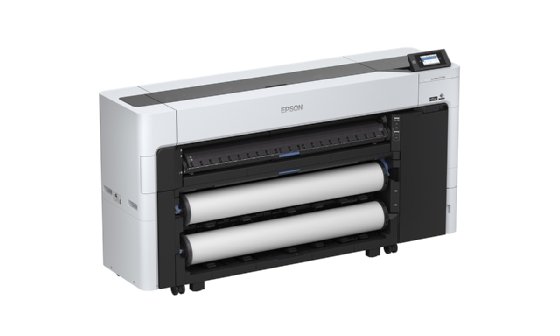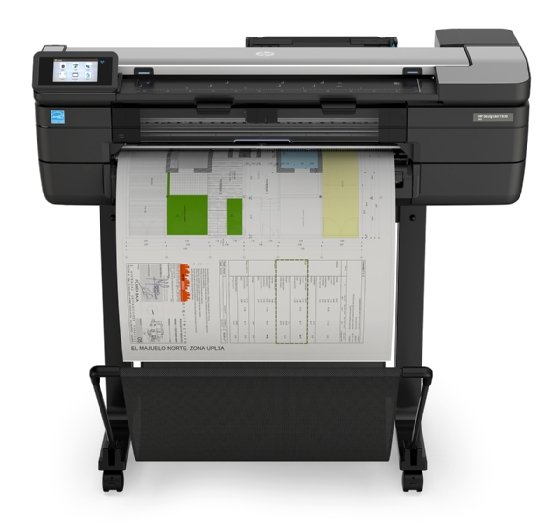plotter
What is a plotter?
A plotter is a printer that interprets commands from a computer to make line drawings on paper with one or more automated pens. Unlike a regular printer, a plotter can draw continuous point-to-point lines directly from vector graphic files or commands.
Types of plotters include the following:
- Drum plotters, which draw on paper wrapped around a drum that turns to produce one direction of the plot while the pens move to provide the other direction.
- Flatbed plotters, which draw on paper placed on a flat surface.
- Electrostatic plotters, which draw on negatively charged paper with positively charged toner.
- Inkjet plotters, which use inkjet printer technology and colored inkjet pens to deliver beads of ink in an assortment of colors to the drawing surface using vector graphic technology to move the pen plotters.
HP is the leading vendor of plotters worldwide. Other manufacturers in this market include Canon, Epson and Graphtec.

How are plotters used?
Plotters are also referred to as large-format printers and wide-format printers. They were the first type of output device that could print high-resolution continuous lines, text and images with color and generate graphics and full-sized engineering drawings.
Plotters are more expensive than traditional printers. They are frequently used for computer-aided manufacturing (CAM) and computer-aided engineering (CAE) applications, such as computer-aided design or CAD drawings. Plotter uses also include generating blueprints, graphs, technical drawings and architectural drawings.
Cutting plotters can be programmed to generate an image and also cut out the image using special cutting tools or lasers. This is useful for working with materials besides paper, such as vinyl that's used to create signs and billboards.

Plotter software
The two types of plotter software on the market are the following:
- General-purpose software supports a range of drawing requirements.
- Special-purpose software is designed to help nonprogrammers use the graphics applications properly. Examples of special-purpose plotter software include CAD, painting, business systems and medical systems.
Pros and cons of using plotters
The advantages of using a plotter include the following:
- Specialized applications. Plotters can generate high-resolution line drawing, images, graphics and text for specialized applications, such as printing on large pieces of paper on a flatbed type of printer.
- Variety of material. Besides paper, plotters can print on other surfaces, such as cardboard, fabrics, plastic, plywood and aluminum.
- Repetition. They can repeat the same pattern many times, with no degradation of image quality.
- Quality. Traditional printers can generate similar images to those of a plotter printer, but often without the clarity, especially with complex line drawings.
Some drawbacks associated with plotters include the following:
- Size. They are typically larger than traditional printers.
- Cost. They usually cost more than traditional printers.
Plotter evaluation and selection
The application and its requirements will determine the type of plotter and software needed for a task. An online search can identify plotter candidates and vendors. Consider the secondary market of used and reconditioned plotters as a cost-effective alternative for obtaining a suitable device.
Increasingly, computer hardware devices are being offered using the as-a-service model. Learn more about the device-as-a-service option.
